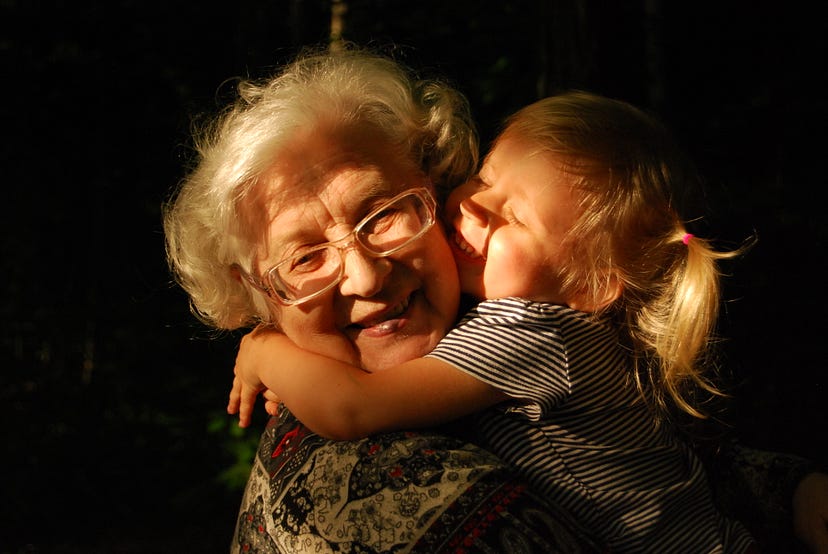As caregivers for the elderly, it is imperative to devise strategies to sustain our own mental health and wellbeing. In this comprehensive guide on “Coping Strategies for Caregivers,” we will explore various adaptive techniques that can be adopted to reduce stress and prevent caregiver burnout.
We will begin by identifying different emotion-focused coping strategies such as confrontational coping, planful problem-solving, distancing, self-controlling, accepting responsibility, positive reappraisals, seeking social support (instrumental), and seeking social support (emotional) escape avoidance. Furthermore, we’ll delve into methods of enhancing self-awareness and acceptance in caregiving through journaling for self-reflection and acknowledging personal limitations.
In addition to these techniques, the importance of maintaining a strong network of social connections outside caregiving duties will be discussed along with setting realistic goals and planning ahead. We will also cover available community resources such as local caregiver services and respite care options which play a protective role in managing stress levels during challenging times.
Lastly, recognizing signs of high caregiver stress is crucial in ensuring one’s own mental health remains intact while providing care for older adults or an ill spouse. We hope that this extensive exploration into Coping Strategies for Caregivers proves beneficial in assisting you through your journey as an informal caregiver.
Table of Contents:
- Recognizing and Managing Caregiver Stress
- Effective Coping Strategies for Caregivers
- The Power of Self-Awareness and Acceptance in Caregiving
- Professional Help and Support Groups for Caregivers
- Importance of Social Interaction Outside Caregiving Duties
- Setting Realistic Goals for Caregivers
- Community Resources and Support Services for Caregivers
- Maintaining a Healthy Lifestyle While Providing Care
- FAQs in Relation to Coping Strategies for Caregivers
- Conclusion
Recognizing and Managing Caregiver Stress
Identifying signs of high caregiver stress is crucial in addressing potential issues early on before they escalate further.
Common signs of high stress in caregivers may include feeling down, worried, mad and drained.
Effective coping strategies adopted by caregivers include seeking social support, practicing adaptive coping techniques, and utilizing community resources.
- Depression: Feelings of sadness or hopelessness that persist over time.
- Anxiety: Constant worry or fear about caregiving duties and the well-being of your loved one.
- Fatigue: Feeling physically and mentally exhausted from caregiving responsibilities.
- Irritability: Easily annoyed or angered by small issues related to providing care for an elderly family member.
Early intervention can help prevent more severe mental health problems such as burnout or chronic stress-related illnesses.
Joining a support group for informal caregivers taking care of older adults can provide emotional support and reduce social isolation.
Practicing emotion-focused coping strategies can help reduce stress levels experienced during stressful situations involving ill spouses, stroke survivors, and those living with disabilities requiring assistance with daily tasks performed within home environments.
By acknowledging the protective role played through engaging professional services when necessary, primary carers worldwide stand better chances of maintaining their own emotional stability while fulfilling roles required throughout eldercare journeys undertaken.
Effective Coping Strategies for Caregivers
Caring for an elderly loved one can be a difficult task, yet utilizing successful coping strategies may help you regulate your feelings and sustain your mental health.
Based on Folkman’s Ways of Coping Questionnaire, there are eight adaptive coping strategies that caregivers should consider:
- Confrontational coping: Address issues head-on and assertively communicate with family members or healthcare professionals.
- Planful problem-solving: Identify problems, brainstorm solutions, and implement a plan to resolve them.
- Distancing: Temporarily step back from caregiving duties to gain perspective and recharge emotionally.
- Self-controlling: Regulate your emotions by practicing mindfulness techniques like deep breathing exercises or meditation.
- Accepting responsibility: Acknowledge the role you play in providing care while also recognizing the limits of what you can control.
- Emotion-focused coping strategies: Manage your emotions by seeking emotional support from friends, family members, or a support group.
- Protective role: Recognize the importance of your role in protecting your ill spouse or stroke survivors.
- Social support: Seek social support from fellow caregivers or join a support group to reduce social isolation.
By incorporating these strategies into their daily routines, caregivers may experience reduced stress levels, improved mental health outcomes, and increased social support networks among fellow caregivers sharing similar experiences.
Training programs focusing on increasing usage rates across all eight categories could potentially alleviate caregiver burden further still – ensuring better overall quality life standards maintained throughout entire duration eldercare journeys undertaken worldwide.
The Power of Self-Awareness and Acceptance in Caregiving
Managing caregiver stress is easier with self-awareness and acceptance, which reduces the likelihood of developing mental health issues.
Acknowledging Emotions During Caregiving Duties
Identifying emotions helps caregivers understand their reactions, allowing for adaptive coping strategies to be adopted.
Journaling to Gain Clarity Over Emotional States
- Writing down feelings
- Analyzing patterns over time
- Finding ways to cope with negative emotions
- Gaining insight into personal growth throughout the caregiving journey
Maintaining a journal enables caregivers to track their emotional states, identify triggers for stressful situations, and seek social support from family members or friends who can offer valuable advice or simply lend an empathetic ear.
Informal caregivers who provide care for older adults, ill spouses, or stroke survivors often experience caregiver burden and social isolation. Seeking social support and using emotion-focused coping strategies are effective coping strategies adopted by caregivers to reduce stress.
Joining a support group can provide emotional support and help caregivers feel less alone in their journey.
Professional Help and Support Groups for Caregivers
When caregiver stress becomes too overwhelming, seek professional help or join support groups to cope with the challenges of caregiving.
Psychologists can provide valuable guidance in managing emotions and coping with caregiver burden.
Caregiver support groups offer a safe space to vent frustrations and connect with others who share similar experiences.
When to Seek Professional Help?
- If anger or jealousy is affecting your ability to provide care effectively.
- If feelings of depression or anxiety are interfering with daily life.
- If you’re struggling to cope despite trying various coping strategies.
Benefits of Joining a Caregiver Support Group
- Social support: Connect with fellow caregivers who understand the challenges of caring for older adults and reduce social isolation.
- Educational resources: Learn about helpful tools, techniques, and services that can ease caregiver burden and improve mental health.
- Mutual encouragement: Hear success stories from other family members who have navigated stressful situations while taking care of their loved ones.
Importance of Social Interaction Outside Caregiving Duties
Maintaining a healthy social life is crucial for caregivers to reduce stress and prevent feelings of social isolation.
Engaging in activities with friends, family members, or joining clubs can provide much-needed breaks from caregiving responsibilities.
These interactions offer emotional support and help maintain mental health.
Reducing Caregiver Isolation
- Stay connected with friends and family members through phone calls, video chats, or meet-ups.
- Join a caregiver support group to gain valuable insights and encouragement from others who share similar experiences.
- Dedicate time to hobbies and interests outside of caregiving duties.
Balancing Caregiving and Personal Life
- Construct a daily schedule that includes moments for self-care, such as physical activity or contemplation.
- Utilize temporary relief options like adult day centers or in-home care providers to give yourself a break when needed.
- Stay connected with loved ones and support networks through tools like video chat or social media.
Setting Realistic Goals for Caregivers
As a caregiver, it is critical to establish attainable objectives that permit you to arrange and adjust to the evolving conditions in elder care. These goals can be both long-term and short-term, ensuring adequate preparation for various stages encountered throughout your caregiving journey.
- Long-term goals: Consider what you hope to achieve over an extended period, such as improving your loved one’s quality of life or maintaining their independence as long as possible. This might involve researching appropriate care options like long-term care facilities.
- Short-term goals: Focus on immediate tasks at hand, like managing daily medications or attending doctor appointments with your elderly family member. Short term-goals help reduce stress by breaking down larger responsibilities into manageable steps.
In addition to goal setting, it’s crucial to learn how to adapt when faced with unexpected challenges while providing care for older adults. For example, if your ill spouse experiences a sudden decline in health or stroke survivors require additional support due to unforeseen complications, being flexible and adjusting your plans accordingly is vital.
To help manage stressful situations and maintain mental health during these times of change, consider seeking social support from friends or family members who understand the unique demands associated with taking care of an aging loved one. Joining a local caregiver support group, either online or in-person can also provide valuable emotional support and practical advice from others facing similar challenges.
Community Resources and Support Services for Caregivers
Accessing community resources and joining support groups can provide practical guidance and emotional support for caregivers.
Types of Community Resources Available
- National Institute on Aging (NIA): Offers information on caregiving, long-term care options, and resources for older adults.
- Eldercare Locator: Connects caregivers with local services such as meal delivery, transportation assistance, and legal aid.
- Alzheimer’s Association: Provides caregiver tips, educational materials, and support groups specific to Alzheimer’s disease or dementia-related conditions.
- American Cancer Society (ACS): Offers cancer-specific caregiver resources including online communities for social support.
Benefits of Utilizing Support Services
By participating in a support group, caregivers can learn coping strategies adopted by others and gain inspiration for handling stressful situations. Seeking emotional support from family members or friends can play a protective role in maintaining mental health. Utilizing community resources can also help reduce caregiver burden and provide more time for taking care of loved ones.
Maintaining a Healthy Lifestyle While Providing Care
Set personal goals and prioritize self-care to maintain a healthy lifestyle during caregiving duties.
Personal Health Goals for Caregivers
- Get enough sleep: Aim for 7-9 hours of sleep per night to rejuvenate.
- Stay active: Incorporate exercise into your daily routine to reduce stress.
- Eat a balanced diet: Consume nutrient-dense foods to support immune function.
- Stay hydrated: Drink plenty of water throughout the day to promote optimal body functioning.
The Role of Respite Care
Seek respite care or utilize local caregiver resources to alleviate some of the burden associated with caring for an elderly loved one.
- Respite care: Provides temporary relief by allowing caregivers time off from their responsibilities while ensuring their loved ones receive quality care in their absence.
- Community resources: Take advantage of support groups to share experiences and seek emotional support during stressful times.
- Protective role: Connecting with others can play a protective role against social isolation often experienced by informal caregivers.
- National Respite Locator Service: Find available respite services near you by visiting the National Respite Locator Service website.
FAQs in Relation to Coping Strategies for Caregivers
What are the 5 types of coping strategies?
The five main types of coping strategies include problem-focused, emotion-focused, seeking social support, avoidance or distraction, and cognitive reframing.
What strategy can help reduce caregiver stress?
Seeking social support is an effective strategy to reduce caregiver stress.
What are the 4 types of coping strategies?
Four common categories of coping strategies include problem-solving, emotional regulation, cognitive restructuring, and seeking social support.
What is one strategy that caregivers can provide to cope with behavioral changes?
Adopting person-centered care principles and effective communication techniques can help caregivers manage challenging behaviors more effectively.
Connecting with friends, family members or joining a caregiver support group can provide emotional encouragement and practical assistance during challenging times.
Utilizing coping strategies helps individuals manage stressors by addressing issues directly, managing emotions related to the situation, connecting with others for support or advice, engaging in activities that divert attention from stressors and reinterpreting situations in a more positive light.
Adopting person-centered care principles involves understanding individual needs/preferences while promoting autonomy/respect.
Effective communication techniques and creating a structured, consistent environment can help caregivers manage challenging behaviors more effectively.
Informal caregivers play a protective role in the lives of older adults, such as ill spouses or stroke survivors.
Social isolation can lead to caregiver burden, but seeking social support and joining support groups can help reduce stress.
Adaptive coping strategies are essential for taking care of oneself while providing care to others.
Emotion-focused coping strategies can help individuals manage their emotional response to stressful situations.
Reducing caregiver stress is crucial for maintaining mental health and providing quality care.
Embracing Resilience: Fostering a Balanced and Fulfilling Caregiving Journey
Caregivers for the elderly face many challenges and can experience high levels of stress, but effective coping strategies can help manage these difficulties and improve their overall well-being.
Enhancing self-awareness and acceptance, seeking professional help or support groups, maintaining social connections, setting realistic goals and planning ahead, utilizing community resources and support, maintaining personal health, and recognizing signs of high caregiver stress are all important strategies for caregivers.
Implementing these strategies into daily routines can help caregivers better cope with their responsibilities while maintaining a healthy work-life balance.




